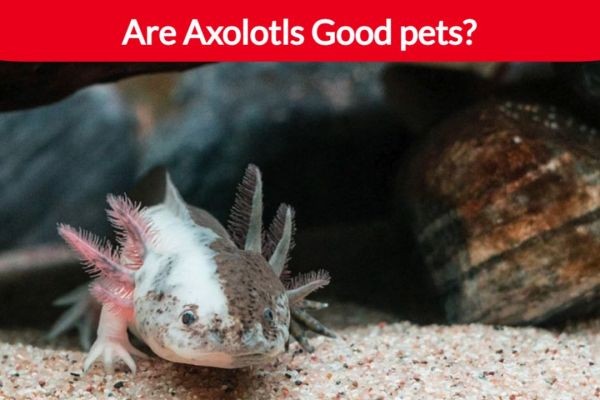Nurture your pet rabbits for a long, happy life; discover the secrets to extending their years and joy.
08/12/24 • 104 Views
Your furry companion bunnies can live between 8 and 12 years as pets, provided they receive attentive care and live in ideal conditions. Unlike their wild counterparts, who often live only 1–9 years due to predators and accidents, domestic rabbits' lifespans are greatly extended through secure living environments, a balanced diet high in fiber, regular vet check-ups, vaccinations, and diligent dental care. Factors such as the bunny's breed and size also play a role in their longevity. Making sure they get enough exercise and mental stimulation is key. By understanding what influences their lifespan, you can guarantee your bunny thrives for years to come.
Understanding Rabbit Lifespan
Understanding a rabbit's lifespan is vital for any pet owner, as various factors, including breed, care, and genetics, greatly influence how long your bunny may live. Most domestic rabbits can enjoy a lifespan of 8–12 years under the right conditions, which is notably longer than their wild counterparts, who often live only 1–9 years due to predators, habitat loss, and accidents. This substantial difference underscores the impact of a secure living environment and attentive care on the longevity of domestic rabbits.
Different rabbit breeds show varying lifespans, with smaller breeds typically outliving their larger counterparts. This is an important consideration when choosing a pet rabbit, as it can influence the commitment you're making. Providing a balanced diet rich in fiber and low in fat, along with ample opportunities for exercise, plays an essential role in maintaining a healthy rabbit. Regular veterinary check-ups, vaccinations, and dental care are integral to preventing diseases that can shorten a rabbit's life.
Key Factors Influencing Longevity
- To guarantee your bunny enjoys a long, healthy life, it's crucial to concentrate on diet and nutrition, healthcare, and genetics.
- Offering a balanced diet abundant in fiber can greatly influence their well-being, while routine vet visits help identify and prevent potential health issues early.
- Additionally, comprehending your pet's genetic predispositions allows you to customize their care to meet specific needs, further boosting their lifespan.
Diet and Nutrition
A balanced diet, including hay, vegetables, and pellets, is essential for ensuring your bunny's longevity and overall health. High-fiber hay, vital for maintaining digestive health, should be the primary nutrition source for your rabbit. It's important to avoid feeding them high-sugar foods, like carrots, which can negatively impact their health. Proper nutrition is key to preventing obesity and other health issues in rabbits, greatly influencing their lifespan.
By providing consistent access to fresh water and a variety of nutritious foods, you're promoting a longer, healthier life. Remember, your rabbit's diet and nutrition are foundational to their well-being. Ensuring they have the right balance of hay, vegetables, and pellets will help your furry friend thrive for years to come.
Healthcare and Genetics
While an essential diet plays an important role in a rabbit's health, regular veterinary care and genetic makeup are equally significant in determining their lifespan. For your pet rabbits, quality healthcare, including spaying or neutering, can greatly extend their life expectancy.
Unfortunately, genetic predispositions to certain illnesses can negatively impact a rabbit's longevity. However, you can counteract some of these risks with preventive measures such as vaccinations and diligent dental care. Regular monitoring and management of any health concerns are critical for maintaining your rabbit's well-being.
Diet Essentials for Bunnies
To guarantee your bunny's health and longevity, it's essential to concentrate on top-quality hay varieties and maintain a vital nutrient balance in their diet. Grass hay, not alfalfa, should be the foundation of their diet, supporting dental health and proper digestion. Introduce a balanced mix of vegetables and pellets to provide the necessary vitamins and minerals, keeping treats like carrots to a minimum due to their high sugar content.
Optimal Hay Varieties
- Choosing the ideal hay variety is essential for upholding your bunny's health, as different types provide distinct benefits tailored to their dietary requirements.
- Timothy hay stands out as an ideal choice for adult rabbits due to its high fiber content and low calcium levels, reducing the risk of urinary issues.
- For those prone to bladder sludge or stones, Orchard grass hay serves as a suitable option.
- Meadow hay introduces a blend of grasses and herbs, adding variety and promoting digestive health.
- Young, growing rabbits benefit greatly from alfalfa hay, which supports their growth with high protein and calcium levels.
- Alternatively, oat hay can be a good option for rabbits with sensitivities, offering nutritional benefits while accommodating dietary restrictions.
Essential Nutrient Balance
Achieving the correct balance of nutrients in your bunny's diet is crucial for their overall health and longevity. For pet rabbits to enjoy a long life, a healthy diet that primarily consists of high-fiber hay is essential. This not only supports their digestive health but also guarantees they're getting the bulk of their nutritional needs met.
While carrots are a popular treat, you should offer them sparingly due to their high sugar content. It's also important to avoid foods high in calcium, like alfalfa hay, which can lead to health complications. Providing a balanced diet rich in hay, vegetables, and a limited amount of pellets, plays a significant role in extending the rabbit's lifespan.
Importance of Regular Vet Visits
Ensuring your bunny receives regular vet visits is vital for catching minor health issues before they escalate. These routine checkups are a cornerstone of preventive care, allowing your vet to monitor your rabbit's health closely. During these visits, your vet can identify any early signs of health issues that, if left untreated, could develop into serious illnesses. It's not just about spotting problems early; it's also about maintaining your rabbit's overall well-being.
Vaccinations play an important role in your rabbit's health regimen, protecting them from potentially deadly diseases. By keeping their vaccinations up-to-date, you're providing a shield against threats that could compromise their health. Another critical aspect that vet visits cover is dental health. Rabbits have unique dental needs; their teeth continually grow throughout their lives. Without proper care, this can lead to severe dental issues, affecting their ability to eat and leading to further health complications.
Prompt attention to any health concerns not only addresses immediate issues but can greatly prolong your rabbit's lifespan. Regular vet visits are an investment in your bunny's health, ensuring they remain your happy, hopping companion for years to come.
Spaying/Neutering Benefits
By choosing to spay or neuter your bunny, you're taking an essential step towards greatly improving their health and extending their lifespan. Female rabbits, known as dos, benefit immensely from being spayed. This procedure greatly reduces their risk of developing uterine tumors and infections, common health issues that can shorten their lives. By preventing these reproductive issues, you're ensuring your furry friend has the chance to live a longer, healthier life.
Neutering male rabbits, or bucks, is equally important. This process can prevent testicular cancer, a concern for aging male rabbits. Additionally, neutering can curb aggressive behavior often exhibited by unneutered males, making them more pleasant companions. Beyond health benefits, spaying or neutering helps control the rabbit population and prevents the birth of unwanted litter, which is a responsible step toward pet ownership.
Veterinary professionals strongly recommend spaying or neutering pet rabbits as part of their routine care. This advice isn't just about controlling behavior or population; it's about preventive healthcare. Following these veterinary recommendations to have your bunny spayed or neutered can extend their lifespan and improve their quality of life, ensuring you and your pet enjoy more precious years together.
Creating a Stimulating Environment
In addition to spaying or neutering your bunny, creating a stimulating environment plays a key role in enhancing their overall well-being and longevity. Rabbit care involves more than just providing a safe space; it's about ensuring your furry friend has a calm environment that encourages both mental and physical growth. Introducing toys and activities that promote mental stimulation is essential to prevent boredom and keep your bunny engaged.
Creating a peaceful atmosphere is equally important. Sudden movements and loud noises can easily startle rabbits, so it's important to maintain a quiet and serene environment that allows them to feel secure. This calm environment not only supports their mental health but also contributes to their physical well-being.
Furthermore, offering a spacious cage and ample room for exercise is essential. Rabbits need space to hop, stretch, and explore to stay physically active and healthy. A lack of physical activity can lead to various health issues, so ensuring they've got enough space is a key aspect of rabbit care.
Common Health Issues
While bunnies can bring joy and companionship, it's essential to be aware of several common health issues that can affect their well-being and longevity. Overgrown teeth, for instance, aren't just an inconvenience; they can lead to severe eating problems and, if not addressed promptly, even death. This condition highlights the importance of regular veterinary check-ups for early detection and treatment.
Snuffles, a bacterial infection, present another significant risk. It is characterized by sneezing, runny eyes, and nasal discharge and requires antibiotics for treatment. Without timely intervention, this condition can severely affect your bunny's quality of life.
For unspayed female rabbits, uterine tumors are a concerning possibility. This risk underscores the importance of spaying for their long-term health. Additionally, myxomatosis, a deadly disease transmitted by fleas and mosquitoes, poses a significant threat that can be mitigated with proper preventive measures.
Understanding these common rabbit illnesses and the critical role of early detection can go a long way in ensuring a healthy and long life for your furry friend. It's a commitment to their care that can prevent many of these issues and help them thrive in your companionship.
Tips for Prolonging Life
Ensuring your pet rabbit receives regular vet checkups and preventive care is essential for prolonging its lifespan and enhancing its quality of life. These checkups can catch health issues early, allowing for timely treatment and preventing minor problems from becoming major ones. Beyond these crucial checkups, creating a safe and spacious living environment is key. Your bunny needs room to move, hop, and play to maintain a healthy weight and support a long life.
Incorporating a balanced diet is another cornerstone of rabbit care. A mix of quality hay, fresh greens, and pellets not only keeps your pet's digestive system running smoothly but also contributes to overall health, aiding in longevity. Remember, a proper diet helps prevent obesity, which is a common issue that can shorten a rabbit's life dramatically.
Exercise and mental stimulation through enrichment activities are just as important. They keep your rabbit engaged, happy, and physically fit, which are all critical for a long, healthy life. Toys, puzzles, and regular interaction with you can make a significant difference in your pet's well-being.
Conclusion
To sum up, ensuring your bunny lives a long, healthy life involves a blend of a proper diet, regular veterinary care, and a stimulating environment. Don't overlook the benefits of spaying or neutering, which can prevent health issues. Be vigilant about common health problems and take steps to enrich their lives. By following these guidelines, you're setting the stage for your furry friend to enjoy a fuller, happier life alongside you. Remember, their well-being is in your hands.









